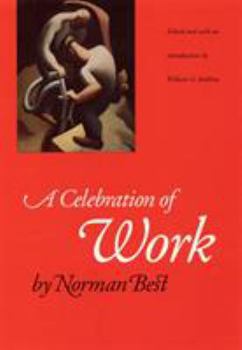A Celebration of Work
Select Format
Select Condition 
Book Overview
In A Celebration of Work he shows how the construction of rural roads, railroad bridges, and modern superhighways depended on the expertise of skilled workers who cared deeply about quality.
Yet the work of private contractors, interested solely in profit, was often careless and dangerous. Best's concern for the worker led him to the Communist Party in the 1930s, but, disillusioned with the party's leadership, he left it in 1946.
His philosophy of economic democracy, rooted in Jeffersonian democracy, Marxian socialism, and the Golden Rule, renders his voice unique. Whether Best is describing organizing a union, busting the highway construction contract system, or refusing to cooperate with the FBI, his memoir honors the art of laboring with pride, self-confidence, and dignity.





